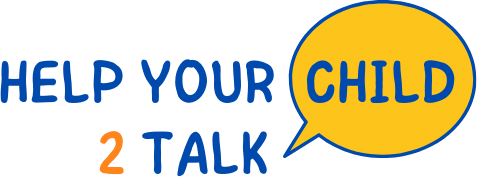As parents, understanding the intricate facets of your child’s speech development can be both fascinating and overwhelming. Articulation, a core component of speech, often becomes a point of concern and curiosity. This article will answer the question, “What is articulation?” It will share information about articulation milestones, offer helpful tips, and give you information about what you can do should you have concerns about your child’s development, and more.
Definition

Articulation as it relates to speech production refers to the precise physical movement of the oral motor system to produce speech sounds. These refined movements result in the clarity or clearness with which a person speaks. If someone has an articulation disorder, they might substitute, leave out, add, or even distort speech sounds in various positions of words and connected speech, making their speech difficult to understand.
For example:
- A nine-year old child saying “wabbit” instead of “rabbit” or “thoap” instead of “soap.”
Why is It Important?
- Clear Communication: Proper production of speech sounds ensures that your child can be easily understood by others, reducing communication-related confusion and frustrations.
- Academic Success: Clear speech can aid in classroom participation as well as most subjects including reading, spelling, and writing.
- Social Interaction: Accurate speech sound production can increase a child’s confidence and effectiveness in social situations.
Age Range for Consonant Development
| Age Range | Consonants Typically Mastered |
| 2-3 years | p, b, m, n, h, w |
| 3-4 years | k, g, d, t, f, v, y |
| 4-5 years | l, s, ch, sh, j |
| 5-8 years | r, z, th, zh |
Common Milestones
Understanding typical milestones can help parents gauge their child’s speech development:
- By age 3-4: Most children can be understood by familiar listeners most of the time.
- By age 4-5: Children can usually speak clearly enough to be understood even by unfamiliar listeners.
Signs of Concerns
- Frequently substituting consonants and vowels and mispronouncing words containing developmentally expected speech sounds.
- Dropping sounds from words
- Adding extra sounds to words
- Distorting sounds in words
- Inconsistent production of speech sounds in different contexts including words, phrases, and sentences
- Becoming frustrated when not able to say desired words or when not understood
If you notice persistent issues, reach out to a speech-language pathologist for an evaluation.
Tips for Supporting Your Child
- Patience: Always give positive attention, encourage, and give positive feedback related to your child’s speech and communication efforts even if you cannot understand them.
- Modeling: Consistently demonstrate accurate production of speech sounds for your child. It is not necessary for them to imitate you. They will benefit from observing and hearing your speech models.
- Reading Together: Regularly share books and read aloud with your child. This provides an opportunity for them to hear accurate articulation.
- Get Direction: Get support from a speech-language pathologist. They can help you to know which sounds to target and how to best support your child.
FAQs
1. What’s the difference between articulation and language?
While articulation focuses on the production of speech sounds, language pertains to the understanding and use of words to exchange ideas and information.
2. Can late talkers have articulation issues?
Yes. Late talkers often face challenges with articulation.
3. When should I consult a speech-language pathologist about my child’s articulation issues?
If you’re concerned about your child’s speech clarity or if they’re behind the development of age-expected milestones, it’s a good idea to consult with a speech-language pathologist for consultation and/or a speech-language evaluation. Early intervention can be highly beneficial.
Resources
- Speech Sound Disorders: Articulation and Phonology (asha.org)
- Articulation and Phonology | Department of Speech and Hearing Science (osu.edu)
- Handy Handout #627: What is Articulation? (handyhandouts.com)
In Conclusion
Articulation plays a crucial role in your child’s speech, communication, academic, and social development. By staying informed, patient, proactive, and involved, you can provide the take the necessary steps and provide support and resources to ensure that your child reaches their speech, language, and communication potential.




0 Comments